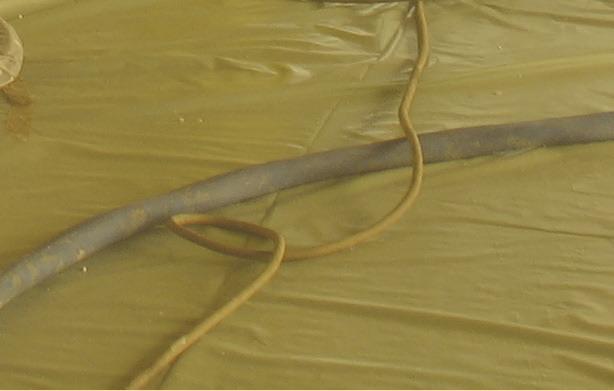
2 minute read
Epoxy Resin floors
Epoxy resin is a type of synthetic polymer that is made from a combination of epoxide and polyamine compounds. When mixed together and applied as a coating, epoxy resin creates a hard, durable surface that is resistant to a wide range of chemicals, impact and abrasion.
Epoxy resin floors also have a wide range of other applications, such as:
Advertisement
- Food processing: Epoxy resin floors create a fungistatic surface, that is, they prevent the proliferation of bacteria. They are also resistant to stains and cleaning chemicals.
- Pharmaceutical industry: Epoxy resin floors provide a smooth and easy-to-clean surface that is resistant to chemical spills and the proliferation of bacteria and fungi.
- Hospitals, laboratories, and medical facilities: In addition to the characteristics of the pharmaceutical application, epoxy resin floors also have the property of reducing the potential for transfer of contaminants such as bacteria and viruses from one surface or substance to another (cross-contamination).
- Retailers, supermarkets, and convenience stores: The wide variety of colors and resistance make them the ideal flooring for this type of application. They help prevent cross-contamination by preventing the proliferation of bacteria between surfaces, a fundamental aspect in the food industry.
Epoxy resin floors can also be used in residential settings, such as in garages and basements, to create a durable and easy-to-clean surface.
It's worth noting that, the surface preparation is critical to a successful epoxy flooring installation. Any imperfections or contaminants on the surface can lead to adhesion failure and other problems. A professional contractor with experience installing epoxy floors is recommended for best results.
Industrial buildings application
Epoxy resin floors are widely used in industrial buildings for their durability and chemical resistance. They are commonly used in factories, warehouses, and other industrial facilities where heavy foot and vehicle traffic are expected.
Some advantages of epoxy resin floors in industrial settings include:
- Durability: Epoxy resin floors are extremely hard and resistant to impact, abrasion, and heavy loads. They can withstand the demands of constant heavy traffic and equipment movement, making them ideal for areas with heavy equipment or forklifts.
- Chemical resistance: Epoxy resin floors are resistant to a wide range of chemicals, acids, and solvents. This makes them well-suited for industrial settings where chemicals are used or stored.
- Slip-resistance: Epoxy resin floors can be formulated to be slip-resistant, making them safer to walk on, even in wet or oily conditions.
- Easy to clean and maintain: Epoxy resin floors are smooth and non-porous, making them easy to clean and maintain. They do not require regular waxing or polishing, and they can be easily sanitized.
- Aesthetics: Epoxy resin floors can be customized with different colors, patterns, and designs, which can help to create a more pleasant working environment and improve productivity.
- Seamless: Epoxy resin floors can be applied in a seamless, monolithic membrane that eliminates the potential for water and chemical infiltration through seams or joints.
- Conductive : With a specialized formulation and surface preparation epoxy resin floors can be conductive and used in sensitive electronic environments
It's worth noting that, Epoxy resin floors are not suitable for exterior use or for areas subject to freezethaw cycles. They are also not suitable for areas with high thermal shock and areas with significant temperature fluctuation.









